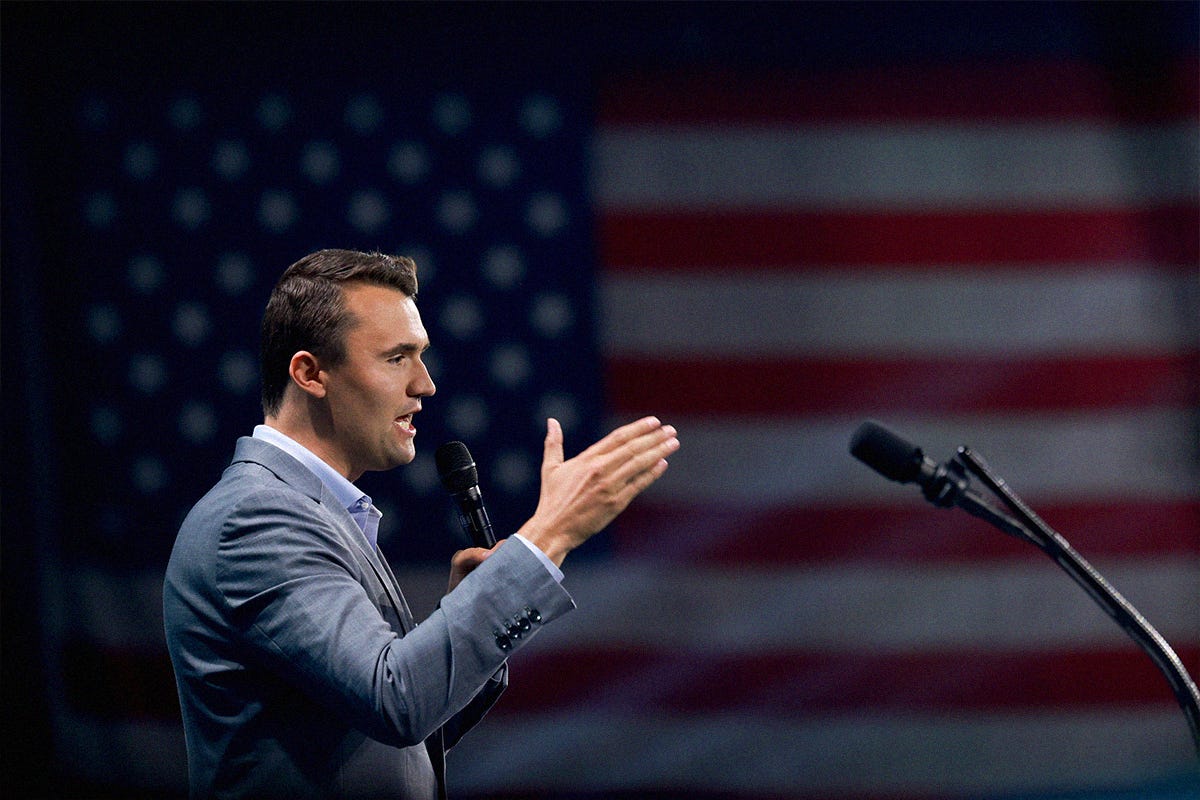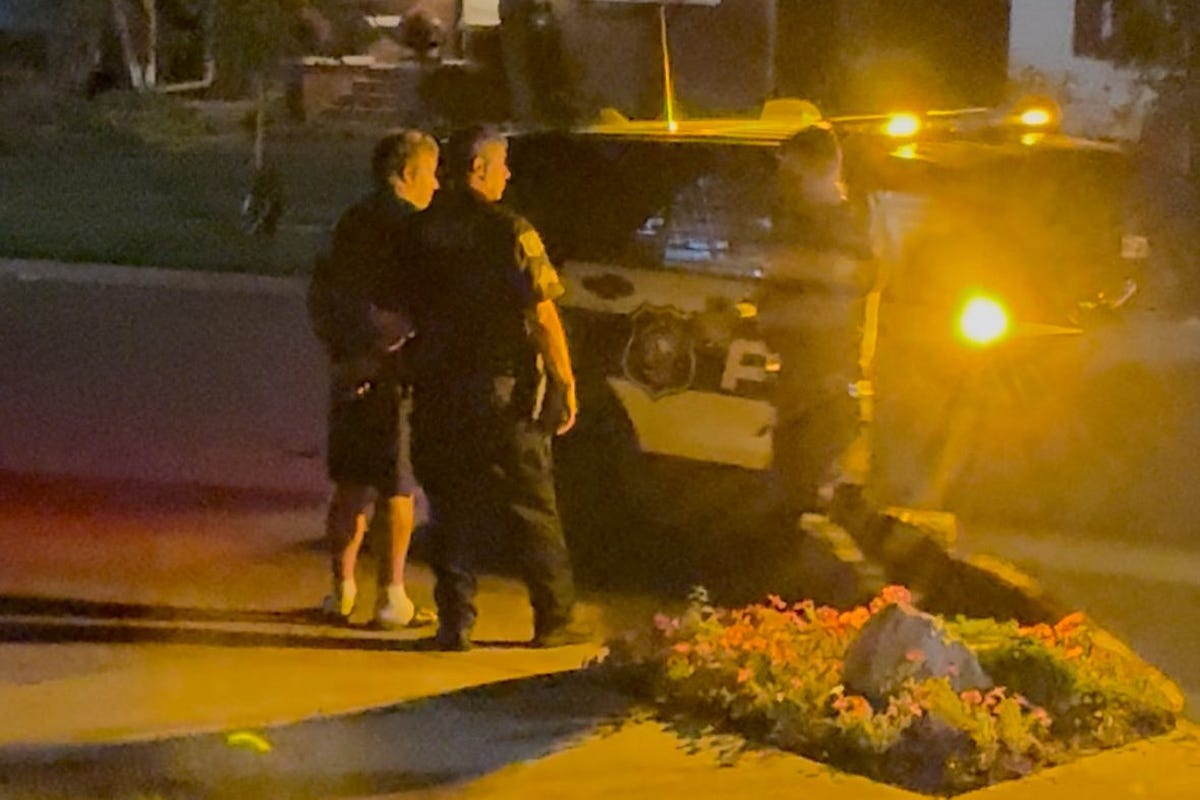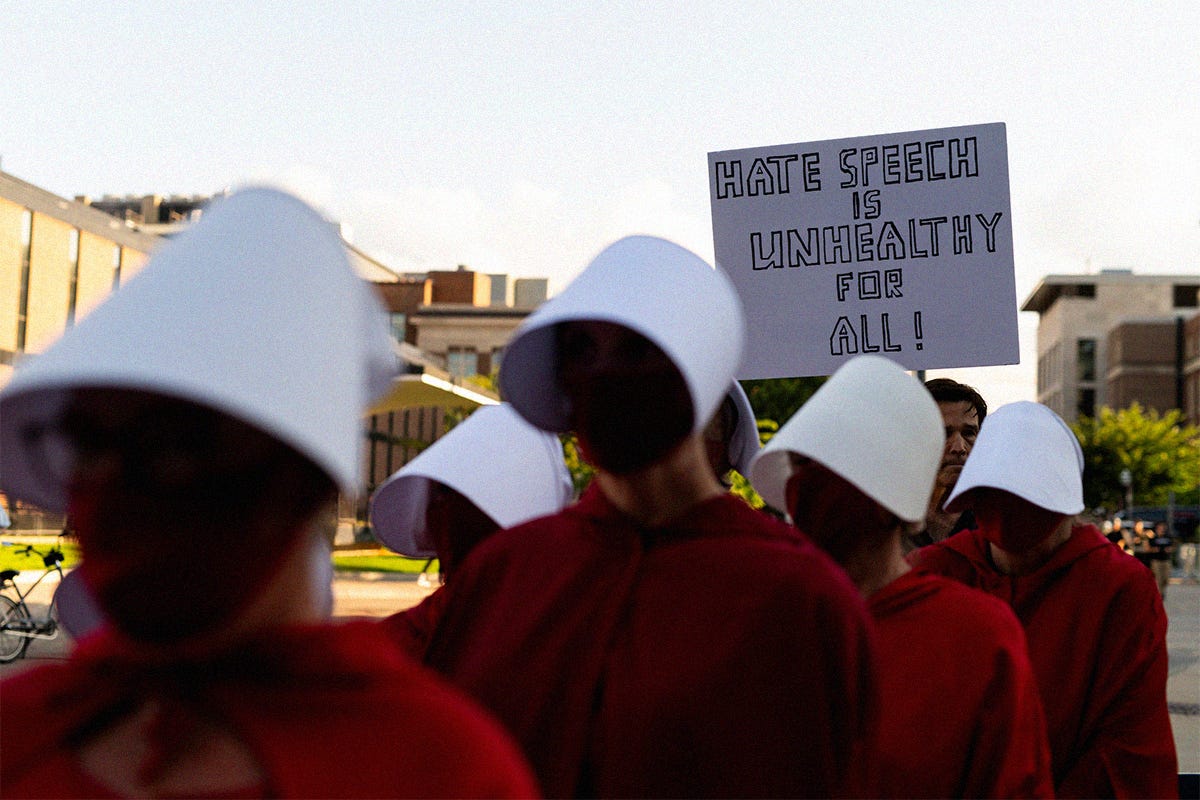These LGBTQ+ Households Were Terrorized After Neighbor Accused “Liberal F***ots” of Killing Charlie Kirk
Two South Dakota households say they are being terrorized by a neighbor who has accused the LGBTQ+ community of killing far-right influencer Charlie Kirk.
Alex Halbach says that he was asleep on September 12 when he awoke to the sound of a man screaming outside. When he looked out the front window, the 40-year-old saw a neighbor breaking branches from a tree in his front yard. Halbach, in a daze, recalls that he stepped outside to ask the assailant why he was vandalizing his property. “What is the problem?” Halbach asked. “You,” the neighbor responded. “You are the problem.”
The confrontation took place in Sioux Falls two days following the murder of Kirk, an influential conservative propagandist who was assassinated during a public engagement at Utah Valley University. As the situation escalated, Halbach says the neighbor began to hurl a stream of homophobic invective before accusing him — and the LGBTQ+ community at large — of being directly responsible for Kirk’s death. “Liberal f***ots killed Charlie Kirk,” Halbach says the neighbor told him. (Kirk’s killer was reportedly dating a trans woman prior to the deadly attack, although his exact motives remain unknown at the time of publication.)
“I didn’t ask for this,” Halbach tells Queer Agenda. “I didn’t antagonize it. I didn’t seek this out. He did it without any provocation whatsoever, to someone who was sleeping in their own bed.”
Halbach believes that the nightmare he has experienced is a result of an increasingly incendiary political climate following Kirk’s death, one that has put LGBTQ+ people in the crosshairs. In the wake of the assassination, the right-wing think tank Heritage Foundation is reportedly pressuring the Federal Bureau of Investigation to declare trans people and their allies as “violent extremists.” In an interview with Fox News, Vice President J.D. Vance did not refute a suggestion from host Jesse Watters that the “militant transgender movement” poses a “domestic terrorist threat.”
In the weeks since the far right began scapegoating LGBTQ+ people for Kirk’s murder, the community has collectively braced for the fallout. An Arizona man, for instance, was reportedly arrested for telling police that he intended to commit a mass shooting at a local gay bar in hopes of avenging Kirk. Calling himself a martyr, he reportedly said that he hoped to “send a message”: “Radical left violence breeds a far-right response.”
Halbach, too, has feared escalation ever since he was harassed on his own lawn. Before law enforcement officials arrived, he says that his neighbor briefly went back to his home, shut off his lights, and then came back. He was concerned that the man had returned with a gun. “South Dakota is very gun forward,” Halbach says. “People in the state are avid hunters.” Halbach has filed for a protection order, but since the incident, he has been afraid to go home — afraid of what his neighbor might do next.
“I am feeling very emotionally vulnerable in a way that I have never experienced in the 20 years that I’ve lived in the state,” he says. “It’s a really odd feeling to come home and feel like I need to be quick and hurry and gather up whatever I need to so I can get out of there because I feel unsafe. That’s a really odd feeling.”
Halbach’s home isn’t the only property to be targeted in the aftermath of Kirk’s murder. The same evening that Halbach was harassed, Rachelle Broveleit — who resides on the same street — says she was startled to hear the neighbor yelling from outside her front window. The 48-year-old recognized his voice almost right away: Broveleit says the man has had numerous disputes with her husband over the years regarding the couple’s support for LGBTQ+ equality, as the parents of a trans son. After they hoisted a Pride flag outside their home in 2023, Broveleit recalls that the neighbor texted her husband, “condemning us and people like us for the evil in the world.”
“I got very scared, very fast,” she tells Queer Agenda of that night. “Rusty said the most terrible things I’ve ever had said to my face. He kept calling me a f*cking bitch and kept using the C-word repeatedly, at the top of his lungs. When I called my husband, my husband could hear it through the phone. That’s how loud he was.”
Broveleit was so terrified by the scene unfolding outside her home that she couldn’t move. Being frozen in place was a major issue, as it quickly dawned on her that, in addition to her blinds being raised, her front door was open. In the 21 years that Broveleit has resided in her home, she has never felt that she needed to worry about these things. When Broveleit telephoned 911 for help, she says the emergency operator ordered her to get up and to do so immediately. “You need to go lock your door,” the operator said, “and then pull your shades.”
Although the neighbor was ultimately arrested by police, he was released on bond after a few hours. Text messages that the Broveleits shared with Queer Agenda show that he resumed communication with them at 4:47 am: “Your friends… called the cops and had me arrested… all because I called them f***ots. From a public sidewalk. Part of tolerance. FREE SPEECH! Charlie died for this.”
Broveleit is currently staying at her parents’ house while her husband is out of town for work. Although she joined Halbach in seeking a protection order, she notes that her kitchen window is 10 feet from her neighbor’s home. She says that she’s “cried more in the last week than in the last year total.”
“I’m a physician assistant,” she says. “I work in psychiatry. I’ve done it for 22 years, so it’s hard for me to not always go: What could the possible outcome be? What if we don’t do something? A flip switched last Wednesday, so what’s the next switch to flip? I was taking the dog out for a walk the other night, and I thought, ‘Is he watching me through his window with a gun?’ I definitely don’t feel like that’s not a possibility.”
While they await news as to whether a protection order has been granted, Halbach hopes to raise awareness about the far-right vitriol the LGBTQ+ community is currently facing. In a September 13 Facebook post that spread quickly throughout their tight-knit community, he warned that “political language that dehumanizes or vilifies others gives permission for violence, for harassment, for neighbors to treat one another as enemies rather than as people.” “Words have consequences, and we’re seeing them play out almost daily,” he wrote.
Although Halbach initially hoped to file hate crime charges against his neighbor, law enforcement officials informed him that he would not be able to do so in South Dakota, which does not recognize LGBTQ+ identity as a protected status. As a local attorney, he believes that those laws need to change, but knows he has little power to do so. Republicans currently hold 91% of seats in South Dakota’s state legislature.
Seeing firsthand how vulnerable his community is in times of crisis has been sobering for Halbach. “If he would not have broken a single branch off of my tree, they probably could not have arrested him that night,” he says. “The homophobic slurs that he was screaming at me were irrelevant.”






